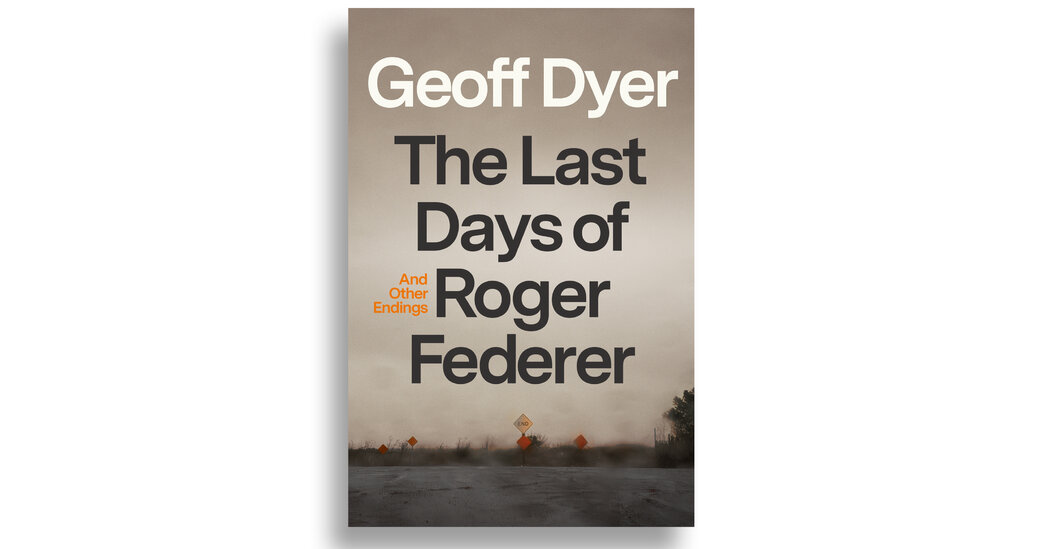
The prospect of Federer’s retirement from tennis is just a fraction of what Dyer contemplates in this tour through various endings — last days, last games, last performances, last works. Dyer’s thoughts are so restless that instead of corralling them in essays he scatters them among numbered sections, collaging “congeries of experiences, things and cultural artifacts that, for various reasons, have come to group themselves around me in a rough constellation during a phase of my life.”
Coltrane, Dylan, Nietzsche, yes, but also Dyer, always Dyer, the point around which this book (like all of his books) invariably turns. He goes from back pain (his) to neck pain (his) to wrist pain (his) to dead hearts (in Lawrence’s “Last Poems”). Lawrence leads to Ruskin and to J.M.W. Turner, whose late paintings make it look as if the landscape is dissolving, burned away by a blaze of light. This change in Turner’s style may have had something to do with the cataracts he developed after habitually staring into the sun, but he transubstantiated this physical limitation into paintings that depicted eternity. A few pages later, Dyer is writing about climate change and the empty streets of Covid lockdown, which prompts in him a memory of seeing the Clash perform in London and missing the last train back to Oxford.
It turns out that Dyer, having set out to write a book about endings, is drawn to endlessness, to the way that one thing leads to another, to Nietzsche’s idea of the Eternal Recurrence, to Bill Murray’s iterative journey in “Groundhog Day,” to the 24-hour loop of Christian Marclay’s film “The Clock.” The notion of the apocalypse, with all of the heavy finality it entails, barely comes up in “The Last Days,” and Dyer says in passing that he “scarcely” thinks about his own mortality — “barely give it the time of day, as they say.” It probably strikes him as too ponderous, too definitive, too “grand” — “possibly the single most repulsive characteristic.”
Dyer is in his 60s now, and even though this book details the various ways that his body has slowed down, he has maintained a youthful buoyancy, an implacable easygoingness. “After a stage in a man’s life,” he writes, “it is essential that he retain some residue of how he saw the world as a 14-year-old.” Some residue, maybe, but how much? Instead of letting some old habits die, he insists on letting them limp along. “Whenever I go to hear orchestral music I follow a strict code of conduct,” he declares, “always keeping my eyes on the most attractive Asian violinist.” This particular instance of Dyer taking (yet another) gander at (yet another) pretty woman happens during (yet another) visit to Burning Man, an event he has repeatedly attended (and written about) before: “I was conscious, even as I bought a ticket and made plans to go, of a tendency to do things one time too many.”
The pandemic is an inevitable presence, with Dyer launching at one point into a disquisition on how Covid made it impossible to travel, thereby blocking his access to those miniature toiletries from hotels, thereby ending his pledge never to buy another bottle of shampoo. “As coronavirus hardships go this barely merits a mention,” he concedes, “but I mention it precisely because it’s not worth mentioning.” His “shampoo project” was “not only life-enhancing but life-defining.” He quotes Nietzsche saying, “The profoundest mind must also be the most frivolous one.” Might all this strenuous anti-grandness come across as, well, a touch grand?




